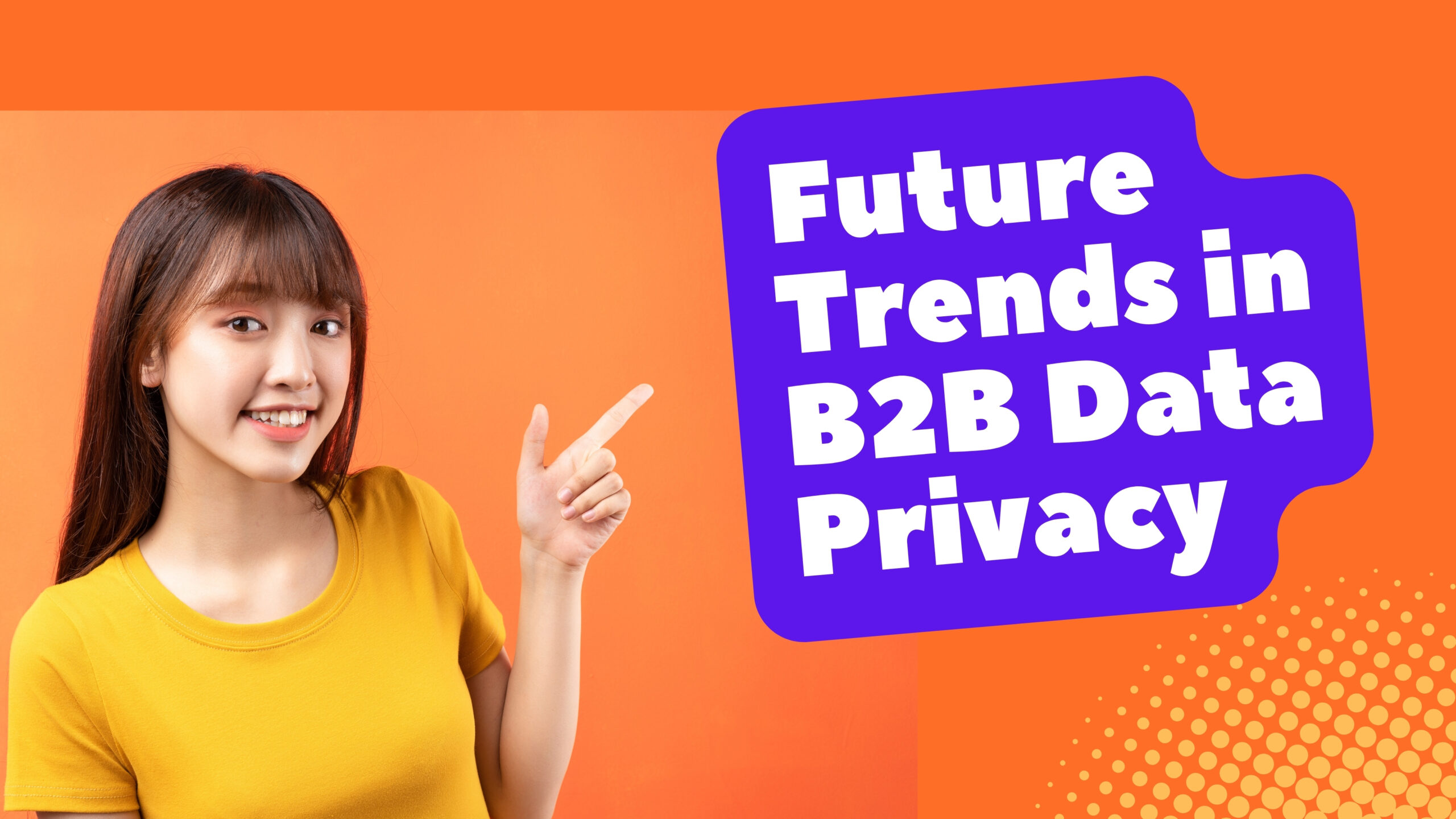
In this enlightening blog post titled “Why Is Data Privacy a Concern in B2B Customer Journey Mapping?The article discusses the need of protecting sensitive information in business-to-business contacts, including hazards, best practices, and technical solutions. The focus term, “B2B customer journey mapping,” emphasizes the blog’s major theme: the growing concern for data protection within the complex world of B2B customer contacts. Discover how data privacy contributes to increased trust, reputation, and regulatory compliance in the fast-paced world of B2B transactions.
Table of Contents
Introduction
Data privacy protections are becoming an increasingly important part of B2B customer journey mapping. As businesses manage the complexities of consumer relationships, the protection of sensitive data is critical. This article delves into the causes for the growing concern over data privacy in B2B customer journey mapping, as well as measures for ensuring secure practices.
Understanding Data Privacy
Data privacy is fundamentally concerned with the security of personal and sensitive information from unwanted access or use. In the context of B2B customer journey mapping, this entails protecting the data collected at numerous touchpoints along the client journey. This covers not only client information, but also transaction records and other sensitive information.
Risks Associated with Data Privacy Breaches
The consequences of data privacy violations in the B2B sector are numerous. For starters, data security is a major concern, as unauthorized access can compromise critical corporate information. Such breaches can undermine trust and harm a company’s brand, affecting its relationships with customers and partners. Furthermore, legal ramifications may arise, as privacy regulations require strong safeguards to secure sensitive data.
Implementing Secure B2B Customer Journey Mapping
To ensure data privacy in B2B customer journey mapping, appropriate data protection standards must be followed. Encryption and anonymization techniques are critical for ensuring information security during storage and transmission. Furthermore, organizations must keep up with privacy legislation and maintain compliance in order to reduce legal risks.
Balancing Personalization and Privacy
While personalization improves the consumer experience, maintaining a balance with privacy is critical. Customization in B2B customer journey mapping should be done with data privacy in mind. Businesses must balance providing a personalized experience with honoring their clients’ privacy expectations.

Technology Solutions for Data Privacy
Advanced technologies, such as artificial intelligence (AI) and machine learning, can improve data security in B2B interactions. These technologies can detect and prevent potential security attacks, adding another degree of protection for sensitive data.
The Role of Consent in B2B Data Handling
Obtaining and managing consent is an essential component of ethical data handling. In B2B transactions, transparent data usage procedures and express consent are critical. This ensures that corporations respect the ethical limitations of data privacy.
Educating Stakeholders on Data Privacy
Aside from technology solutions, educating stakeholders is critical. Employee training programs can instill a sense of knowledge and responsibility for data privacy. This goes beyond internal workers and includes B2B partners, resulting in a network of alert entities dedicated to data protection.
Case Studies: Successful Implementation of Data Privacy Measures
Examining real-world examples of B2B organizations that successfully implemented data privacy protections reveals positive outcomes and lessons gained. These case studies demonstrate the practical advantages of emphasizing data protection in customer journey mapping.
Future Trends in B2B Data Privacy
Looking ahead, innovative technologies will continue to play an important role in data protection. To avoid potential dangers, businesses should anticipate changes in privacy legislation and embrace innovative solutions on a proactive basis.

Also Reads: How to Create a Successful B2B Customer Journey Mapping Strategy?
How Can B2B Customer Journey Mapping Enhance Marketing Strategies?
Why Is Personalization Key in B2B Customer Journey Mapping?
What Tools and Technologies Aid B2B Customer Journey Mapping?
How Can B2B Customer Journey Mapping Optimize Lead Generation?
Conclusion
Finally, data privacy concerns in B2B customer journey mapping are a business need rather than a regulatory requirement. Safeguarding sensitive information is essential for sustaining trust, reputation, and legal standing. Businesses who prioritize and invest in strong data privacy protections will surely receive long-term benefits in the changing landscape of B2B transactions.
Frequently Asked Questions
Q: Is data privacy only a concern for large B2B enterprises?
A: No, data privacy is relevant to businesses of all sizes engaged in B2B interactions. Regardless of scale, safeguarding sensitive information is crucial.
Q: How can B2B companies balance the need for personalized customer experiences with data privacy?
A: Striking a balance involves adopting technologies that allow for personalization while respecting privacy boundaries. Transparent communication with clients also plays a pivotal role.
Q: Are there industry-specific regulations governing data privacy in B2B interactions?
A: Yes, various industries may have specific regulations. It’s essential for businesses to stay informed and comply with relevant privacy laws.
Q: What steps can a B2B company take to recover from a data privacy breach?
A: A prompt and transparent response, coupled with remedial actions and improved security measures, can help rebuild trust after a data privacy breach.
Q: How can B2B companies stay updated on the latest trends in data privacy?
A: Regularly monitoring industry publications, participating in forums, and engaging with experts can help B2B companies stay informed about the latest trends and best practices in data privacy.
